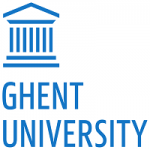项目介绍
Job description
ABOUT GHENT UNIVERSITY
Ghent University is a world of its own. Employing more than 15.000 people, it is actively involved in education and research, management and administration, as well as technical and social service provision on a daily basis. It is one of the largest, most exciting employers in the area and offers great career opportunities.
With its 11 faculties and more than 85 departments offering state-of-the-art study programmes grounded in research in a wide range of academic fields, Ghent University is a logical choice for its staff and students.
JOB DESCRIPTION
Your tasks
The Horizon Europe research project “AHEAD: Toward Sustainable Foresight Capabilities for Increased Civil Security” aims to develop a sustainable civil security foresight framework that enables European agencies to anticipate technological megatrends as well as contextual factors (such as legal, ethical, societal, and economic elements). The goal is to enhance the capacity of civil security agencies to integrate future-oriented thinking into their operations, thus improving their preparedness and adaptability to future challenges. This ambitious project involves close collaboration with law enforcement agencies and civil security practitioners across Europe.
Position Overview:
We are recruiting one full-time researcher with a keen interest in technological developments and their impact on the operational future of policing to join the AHEAD project. As part of this team, you will contribute to the development of a foresight framework that addresses both technological advancements and broader contextual elements relevant to civil security.
This position offers a unique opportunity for the researcher to build the foundation for a PhD proposal, with a focus on further research into technological and contextual aspects of civil security following the project.
Key Responsibilities:
As a researcher, you will support the research efforts within the AHEAD project. Your tasks will include:
- Taking primary responsibility for gathering research findings and compiling them into a practical handbook aimed at supporting civil security practitioners.
- Supporting the management and execution of the research project, ensuring alignment with the project’s goals and milestones.
- Assisting research staff in the collection, processing, and analysis of both quantitative and qualitative data related to technological and contextual elements influencing civil security.
- Contributing to the writing of peer-reviewed articles in English.
- Writing policy briefs targeted at civil security practitioners in Europe to communicate research findings and provide actionable recommendations.
- Disseminating research results by presenting intermediate findings at project consortium meetings and international conferences, as well as publishing research outcomes in academic journals.
- Applying for external PhD research funding.
English will be your main working language.
About the project
With the rise of potentially disruptive technologies such as artificial intelligence and virtual reality, a particular challenge has emerged for law enforcement agencies (LEAs) and other civil security practitioners. Tasked with fostering safe societies and protecting European citizens from new forms of criminality, they need to pre-empt technological evolutions, turning potential threats into opportunities, and anticipate the operational future of policing.
Technology foresight is one possible anticipatory process. However, pure technology watch-based approaches are not helpful for decision-making if not embedded in a qualitative assessment of threats and capabilities. Hence the need to move towards a comprehensive foresight framework which is the rationale behind AHEAD.
Standing for TowArd TecHnological ForEsight for IncreAseD Security, AHEAD is a LEA-led project which will adopt a 360-degree approach accounting for megatrends but also contextual elements (i.e. legal, ethical, societal and economic) to design and operationalise a sustainable capability-based civil security foresight framework. Tested through iterative Foresight Exercises addressing the five Destinations of the Horizon Europe Cluster 3 (Fighting crime and terrorism, Border management, Resilient infrastructure, Increased cybersecurity and Disaster-resilient society), this framework will be tailored to the needs of civil security practitioners to generate “evidence-based” capability roadmaps.
Such roadmaps will translate the foresight process’ outcomes into concrete courses of actions to support decision- and policy-makers at EU and national levels when deciding on strategies and policy actions in the field of civil security, including the programming of security research and innovation investments. By enhancing a forward-looking culture in civil security, AHEAD will contribute to the strategy put forward in the European Commission’s Foresight Agenda to embed in a more systematic way strategic foresight into policy-making.
What we can offer you:
- We offer you a full-time position of definite duration, consisting of a period of 11 months.
- Your contract will start on 1 Feb 2025 at the earliest and 1 Mar 2025 at the latest. The exact starting date will be determined by mutual agreement.
- The fellowship amount is 100% of the net salary of an AAP member in equal family circumstances. The individual fellowship amount is determined by the Department of Personnel and Organization based on family status and seniority. A grant that meets the conditions and criteria of the regulations for doctoral fellowships is considered free of personal income tax. Click here for more information about our salary scales
- All Ghent University staff members enjoy a number of benefits, such as a wide range of training and education opportunities, 36 days of holiday leave (on an annual basis for a full-time job) supplemented by annual fixed bridge days, bicycle allowance and eco vouchers. Click here for a complete overview of all the staff benefits.
Job profile
JOB PROFILE
In order to be eligible, applicants must:
- Hold a MSc degree (e.g., criminology, sociology, psychology, applied economics), or convincingly demonstrate that they will have this degree in hand by their preferred starting date (Note: other disciplines and final-year students are encouraged to apply as well);
- Be ready to relocate to Belgium as their main residence for the time of their contract;
- Be willing to spend (a) period(s) of time abroad as appropriate and to participate in international conferences;
- Be fluent in English as their primary working language, both passively and actively.
In addition, applicants are expected to demonstrate the following:
- Excellent academic track record, as evidenced by excellent grades during their Bachelor’s and Master’s degree;
- Excellent academic writing and presentation skills;
- Ability to work both independently and as member of a multidisciplinary and international team.
Preference will be given to candidates who can demonstrate one or more of the following:
- Be fluent in Dutch and/or French (speaking and writing);
- Experience with knowledge for policy and strategic foresight.
How to apply
Application procedure
To apply, please send:
- A cover letter in English (single spaced, font Calibri 11, max. 2 pages) in which you systematically address the following questions: Why do you wish to pursue research in this area? How does your expertise match the research? What is your prior experience (if applicable)? How you propose to complete your main task?
- A detailed CV, including a list of your publications (if applicable);
- A full transcript of your degrees and grades
- If you your diplomas are in a language other than Belgium’s national languages (Dutch, French or German) or English, please add a translation in one of the afore-mentioned languages.
- Contact information of at least two academic references.
Applicants are asked to submit these documents as one pdf labeled “Application_FirstnameLastname_AHEAD” via email to christophe.vandeviver@ugent.be with the email subject line: “Application_FirstnameLastname_AHEAD”.
As Ghent University maintains an equal opportunities and diversity policy, everyone is encouraged to apply for this position.
Evaluation procedure
The submitted documents will be used to shortlist candidates. Shortlisted applicants will be invited for a (video conference) interview between 13 and 26 Jan 2025.
During the selection interview, the quality and relevance for this position of the academic and practical experience of the candidates will be assessed.
The selection process will be carried out by Prof. Christophe Vandeviver (selection chair), and Dr. Arne Dormaels. They may invite additional colleagues as appropriate to aid in their assessment. Prior to the interview, a definite list of interview participants will be shared with the candidates.
Any candidate who may require special facilities should indicate this in their application, and we will try to accommodate their request.
We aim to notify all candidates of the results of the selection process no later than the end of Feb 2025.
Institutional embedding
About Ghent University
Ghent University is a top 100 university. It is one of the major universities in Belgium and one of the largest universities in the Dutch language area. Our 11 faculties and more than 85 departments offer a broad spectrum of high-quality research-based educational programs and conduct in-depth research within a wide range of scientific domains. Several of our research groups, centers and institutes are renowned worldwide and you will find many eminent scientists among our alumni, including multiple Noble prize winners. Ghent university is known for its scientific expertise in life sciences and medicine, materials and agricultural science, veterinary medicine, psychology and history, and many more.
Ghent University occupies a specific position among the Flemish universities. We are a socially committed and pluralistic university that is open to all students and staff, regardless of their ideological, political, cultural or social background. Our credo is ‘Dare to Think’, challenging everyone to question conventional views and to dare to take a nuanced point of view.
About the Faculty of Law and Criminology
The Faculty of Law and Criminology provides academic teaching and services based on innovative scientific research. The education within these programs is supported by the innovative scientific research performed within the 3 faculty departments encompassing all possible disciplines within the fields of law and criminological sciences. The Faculty is housed in the historic center of Ghent.
About Prof. Vandeviver and the research team
Prof. Christophe Vandeviver is a Research Professor of Criminology at the Department of Criminology, Criminal Law and Social Law, Ghent University, Belgium. He is an International Research Fellow at the Netherlands Institute for the Study of Crime and Law Enforcement (NSCR). Prof. Vandeviver holds a PhD and Master’s degree in Criminology and a Master of Science degree in Quantitative Analysis in the Social Sciences.
Prof. Vandeviver leads a computational criminology research lab, focusing on the quantitative, spatial, and temporal analysis of crime and crime control. His international and interdisciplinary team of postdoctoral and pre-doctoral researchers integrates theories and methods from geography, epidemiology, ecology, and data science to advance the fundamental scientific understanding in these areas. The lab’s research is supported by numerous competitive grants, including funding from Horizon Europe, the Research Foundation Flanders, Ghent University Research Council, the Belgian Science Policy Office, and VLIR-UOS.
More information
For informal inquiries about the project and/or the position, contact Prof. Christophe Vandeviver (christophe.vandeviver@ugent.be) and/or Dr. Arne Dormaels (arne.dormaels@ugent.be).
联系方式
电话: +32 (0)9 331 01 01相关项目推荐
KD博士实时收录全球顶尖院校的博士项目,总有一个项目等着你!





